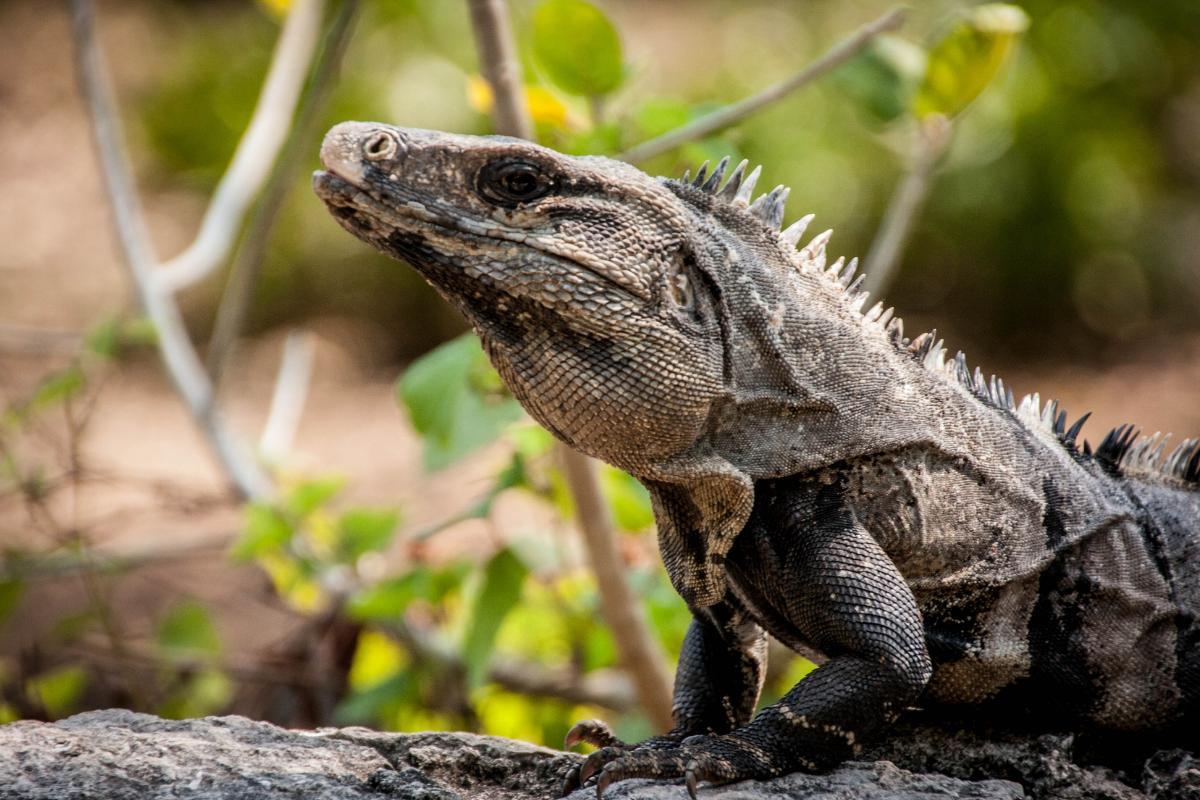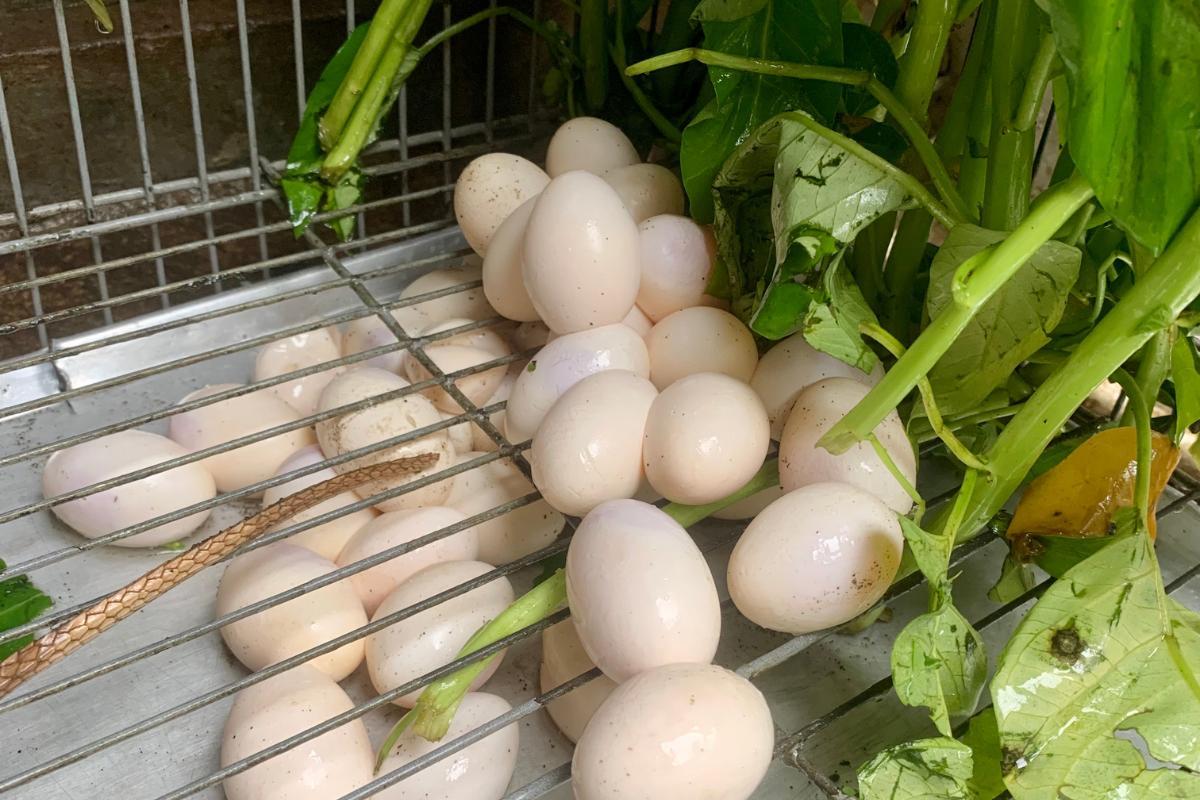Do Iguanas Lay Eggs?

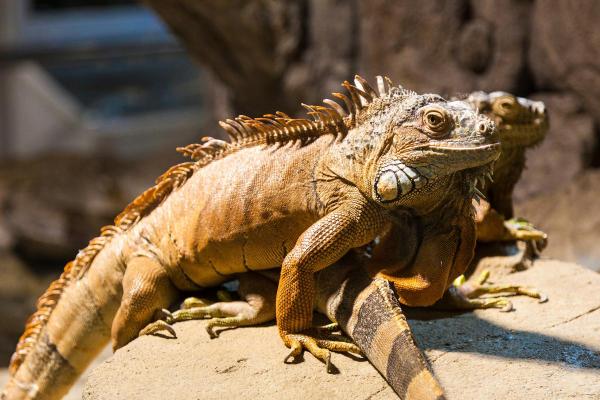
Iguanas do lay eggs as they are oviparous, meaning the eggs are laid and hatch outside the mother. We may associate reptiles with this type of reproduction. However, this is not a trait which is common to all reptiles. There are some reptiles which are ovoviviparous or even viviparous, meaning the eggs hatch inside the mother or they develop inside the mother to be birthed live, respectively. Iguanas are reptiles of the family Iguanidae with a great diversity among species. AnimalWised asks do iguanas lay eggs? We find out if all iguanas lay eggs and discover more about iguana reproduction in general.
Do iguanas lay eggs?
Iguanas do lay eggs. They are oviparous, meaning the young develop after fertilization in eggs which are deposited outside of the body. The egg in this case is the incubation shell with the fertilized zygote inside. This shell of iguana eggs is strong and leathery, protecting the zygote from outside forces. It is sufficiently soft that the young are able to break it open and hatch once they have reached a certain level of maturation.
The eggs of iguanas are metabolically separate from the mother. This means that she does not need to provide nutrients through a placenta or other form of internal incubation. Unlike some animals, iguanas do not incubate their eggs. They deposit them in ground, bury them and let them hatch on their own. Fortunately, iguanas are precocial, meaning they can fend for themselves once they are hatched.
In the next section, we learn more about iguana reproduction, but you can learn more about these lizards with our article on where do iguanas live?
How do iguanas reproduce?
Iguanas reproduce by a form of sexual reproduction. This means a male and a female are required for the reproductive process to occur. As we have explained, they are oviparous. Once the eggs are fertilized, they will be expelled by the mother and deposited for unaided incubation.
While iguana eggs hatch externally, fertilization occurs internally. The male inserts one of his hemipenes, a pair of sex organs which are unique to male members of the order Squamata. This corresponds to similar male sex organs in other animals such as the penis. They remain inside the body and only emerge at the point of copulation to release the sperm inside the female.
For the female iguana, she receives the sperm into a pair of ovaries for fertilization of her eggs. Once fertilized, the eggs will develop, eventually creating the leathery shell typical of reptile eggs. This is then deposited externally via the oviducts and it exits via their cloaca. The cloaca is used both for both reproductive and excretory purposes.
Typically, female iguanas that have access to sufficient food before breeding can produce more eggs. This greatly increases the chances of reproductive success. You can discover more about the types of animal reproduction in our related guide.
When is the mating season for iguanas?
The mating season of iguanas varies depending on the species and the habitat in which they live. Generally speaking, it is common for iguanas to mate during the warmer months or in the dry season of the year. This ensures the hatching of the young in the wet season, when there is an abundant availability of food for the newborn iguanas.
During the mating season, males become territorial and display behaviors intended to attract females. These behaviors include:
- Changes in the color of the head and dewlap, the latter tending to expand a little more.
- The release of a waxy substance containing pheromones through its femoral pores.
- Sudden head movements used to both scare away other males and attract females.
After successful courtship, the eggs are fertilized and the life of a new iguana begins. Learn more about what happens after iguana reproduction in our article on the life cycle of iguanas in the wild and captivity.

How do iguanas mate?
Reproduction in iguanas begins with courtship. When the reproductive couple accepts each other, the male climbs on top of the female and often holds himself in place with his teeth. This can sometimes cause injury. Once in position, he inserts one of his hemipenes and transfers the sperm. This process usually takes a few minutes.
After the female receives the sperm, the sperm travel to the eggs to fertilize them. However, something interesting happens in this reptile. Iguanas have the ability to store sperm for a certain amount of time, being able to delay fertilization if the conditions are not suitable enough for the development of the eggs.
Once internal fertilization of the eggs occurs, they begin their development for a few weeks. Finally, the female looks for a suitable place, digs a nest and deposits the eggs so that the embryos can continue their growth process. Environmental conditions and food availability play an important role in the success of the reproductive process of iguanas.
Incubation of iguana eggs
After the eggs have completed their first phase of development inside the female, she searches for an appropriate place to nest. Usually, the excavation takes place in soft or sandy soil, where the temperature is also suitable for the incubation of the embryos. This aspect is fundamental, since temperature plays a crucial role in the development of the embryos outside the mother's body.
Iguanas usually lay a high number of eggs when conditions are favorable and the females are well developed. For example, the green iguana (Iguana iguana), one of the most common species and can lay up to 60 eggs in each clutch. After laying the eggs, the females leave the nest and the babies are left to fend for themselves. In some cases, a female may stay for a few days guarding the nest to prevent a predator from eating them.
How long does iguana egg incubation last?
The incubation of iguana eggs can last between 90 and 120 days. During this time, temperature is very important. Higher temperatures favor the growth and development of embryos, while lower temperatures slow it down. There are always limits on both high and low temperatures to ensure optimal conditions during the embryonic development of iguanas.
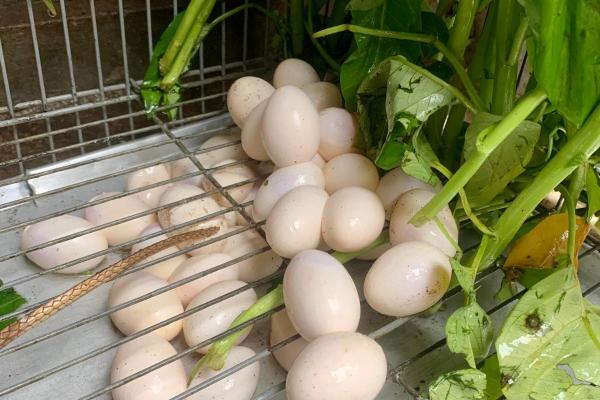
How are iguanas born?
Once the young have completed their development inside the egg, they use a protuberance known as an egg tooth to break the shell and hatch. Once they leave the nest, the baby iguanas are completely independent. As we have mentioned, there is no parental care. Feeding themselves and avoiding predators is an individual challenge that they must face.
Now you know that iguanas do lay eggs and how they are born, you may want to learn more about what happens to them after with our article on feeding a baby iguana.
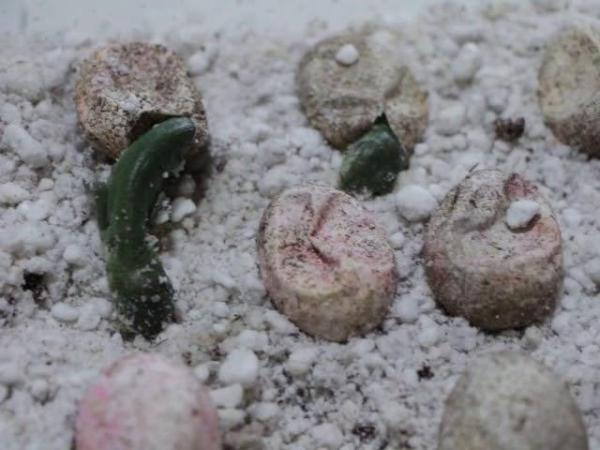
If you want to read similar articles to Do Iguanas Lay Eggs?, we recommend you visit our Facts about the animal kingdom category.
- Egnatios-Beene, J. (2002). Cyclura cornuta. Animal Diversity Web.
https://animaldiversity.org/accounts/Cyclura_cornuta - Gingell, F. (2005). Iguana iguana. Animal Diversity Web.
https://animaldiversity.org/accounts/Iguana_iguana/ - Heying, H. (2003). Iguanidae. Animal Diversity Web.
https://animaldiversity.org/accounts/Iguanidae/






